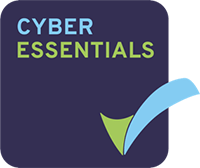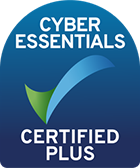Introduction
The topic of monitoring employee wellbeing can be sensitive. Employees may feel that it is an intrusion on their personal lives, while employers may view monitoring as necessary for maintaining productivity and ensuring employee wellbeing. This blog post explores a recent study of information workers’ (IW) perspectives on monitoring employee wellbeing.
An Interesting Study
Swain et al. (2023) wrote about using AI to check how workers feel and monitor their wellness. They warn that using it without considering how people feel could be detrimental. They interviewed 28 people who use information for work to learn more about their feelings regarding using AI to measure how they work and feel.
Study Design
The study interviewed 28 people who work in information technology (IT), such as engineers, developers, analysts, and accountants, in the United States. Each person received a $20 gift card at the end of the interview. The interview had two parts: first, they were asked to talk about their feelings regarding public surveillance and personal tracking. Then, they were shown two different examples to help them understand a new way of tracking how people are doing at work. The goal of the study was to see if this new way of tracking could be used to help people at work. The researchers used these examples instead of studying people’s real behavior. The interviewees were free to imagine different ways that this new way of tracking could be used.
Sharing Data with Employers
Participants were hesitant to share data collected by the Passive Sensing Enabled AI Interface (PSAI), but agreed that estimates produced by PSAI should be shared in some cases. The study found that PSAI can generate evaluations more frequently than traditional organizational methods, but still requires human expertise and perspective. Additionally, the study found that PSAI may not be able to understand personalized insights or create actionable changes without support from managers or mentors. To address this, the study recommended that organizations appoint specialized officers and ensure accountability and trust with data subjects.
The Benefits of Monitoring Employee Wellbeing
Despite the challenges outlined in the study, monitoring employee wellbeing can be beneficial. One potential benefit is that it can help employers identify early warning signs of burnout or other mental health issues. By catching these issues early, employers can take proactive measures to prevent more serious problems from arising. This can not only benefit the employee’s health, but it can also prevent lost productivity and increased healthcare costs for the employer.
Additionally, monitoring can help employees become more aware of their own habits and behaviors. By tracking their own progress and receiving feedback from the monitoring system, employees may be motivated to make positive changes to their lifestyle. This can lead to improved overall health and wellbeing, which can benefit both the employee and the employer.
Finally, monitoring can help create a culture of openness and transparency in the workplace. By being upfront about the purpose and scope of monitoring programs, employers can build trust with their employees and foster a positive work environment. This can lead to increased job satisfaction, engagement, and retention, all of which can benefit the employer in the long run.
Conclusion
In conclusion, monitoring employee wellbeing can be a sensitive topic, but it can also have many benefits for both employees and employers. Swain et al.’s (2023) study highlights the importance of considering employee perspectives and ensuring accountability and trust with data subjects. With Visix’s comprehensive employee wellness platform, employers can monitor employee wellbeing in a way that is privacy-focused, employee-centric, and actionable. By using Visix, organizations can create a culture of openness and transparency around employee wellbeing, leading to a more positive work environment, increased job satisfaction, and improved overall health and productivity.

Author:
Nikhil Sehgal
Improving health & wellbeing with AI | Founder/CEO @ Vastmindz | Forbes 30 Under 30


